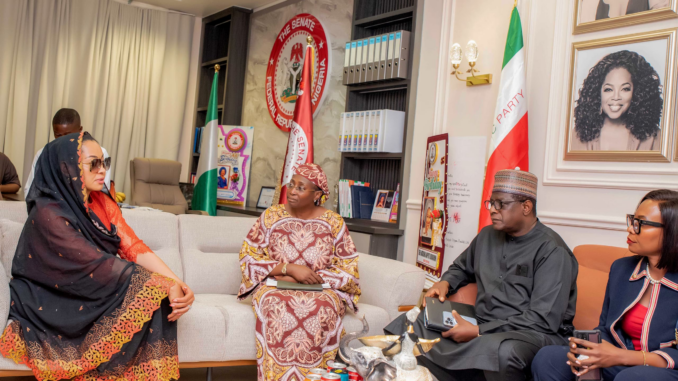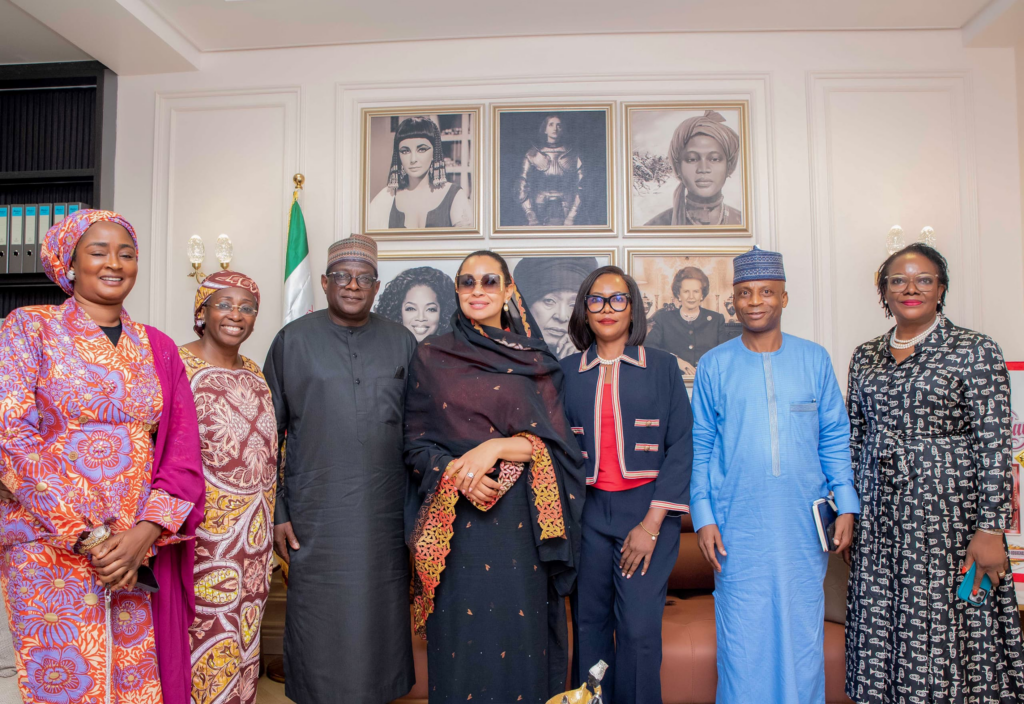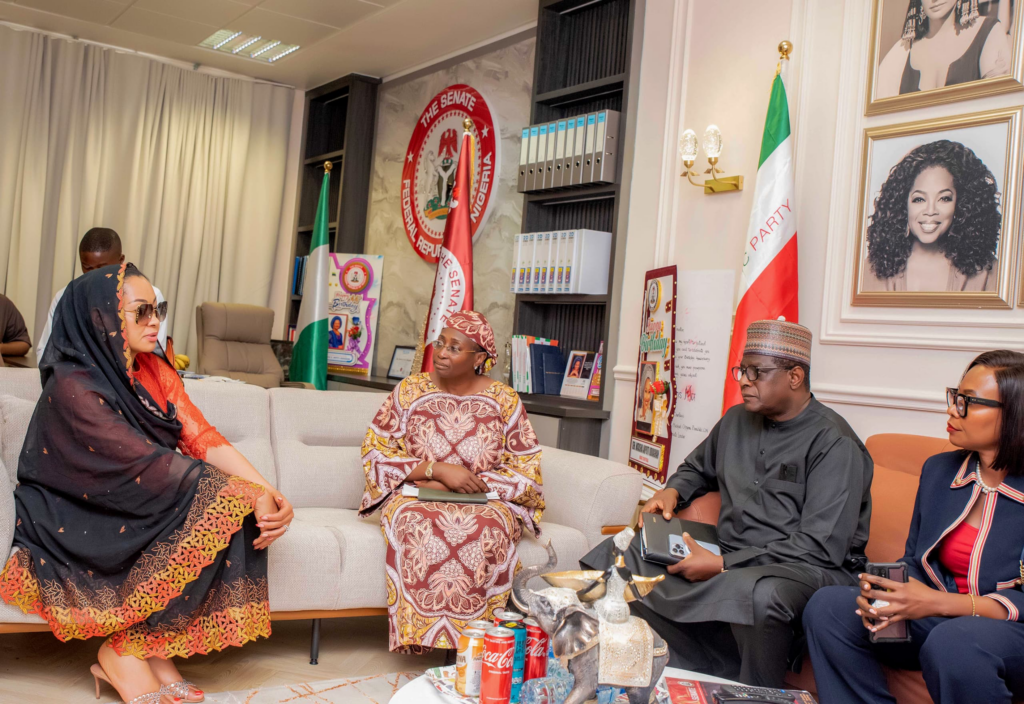
Senator Natasha Akpoti-Uduaghan, Chairman of the Senate Committee on Local Content, met with representatives from the Industrial Training Fund (ITF) and Bank of Industry (BoI) on Tuesday, July 9, to strengthen capacity building and collaboration.

The meeting aimed to enhance synergy between government agencies and maximise impact on Nigerian beneficiaries.
Senator Akpoti-Uduaghan emphasised the importance of joint efforts in promoting local content, particularly in the oil and gas sector, where $300 million is dedicated to Nigerian access through the Bank of Industry.
During the meeting, the senator sought updates on the agencies’ activities, training programmes, and performance reports. She also requested a breakdown of the fund’s utilisation and the number of Nigerians who have benefited from it.

Senator Akpoti-Uduaghan noted the strong relationship between local content and the Bank of Industry and highlighted that the committee had previously written to the Bank of Industry to inquire about the performance of the fund and the amount available to be accessed by Nigerians.
In their separate responses, the ITF team explained that the agency is self-funding, with 1% annual payroll of the workforce drawn from private organisations and government agencies involved in commerce, with a yearly budget of N48 billion.
They highlighted their process of working with state governors to select participants for training and subsequent empowerment. They also mentioned plans to create a channel for trainers to print their certificates online based on their geographical locations. Additionally, they called on the lawmaker to support a law or regulation that would enforce government agencies to patronise ITF for the training of their employees.
The ITF team mentioned their various training and empowerment programmes which include the ongoing Skill-Up Artisans (SUPA) aimed at empowering artisans through tech-enabled skills training, licensing, access to essential toolkits, and promoting industry-standard excellence where the trainees are opened up to employment opportunities both locally and internationally.
They equally mentioned the Technical Skills Development Project (TSDP) in conjunction with the Nigeria Employers’ Consultative Association (NECA) and the National Industrial Skills Development Programme (NISDP). The NISDP will not only train the participants to industrial standards but shall equally empower the participants in form of start-up funds.
On the Students Industrial Work Experience Scheme (SIWES), Senator Akpoti-Uduaghan expressed dissatisfaction with the N10,000 to N15,000 being given to students who undertake the scheme over a period of 4 to 6 months.
She equally faulted the rejection attitude of organisations towards the students and urged for more synergy between the organisations and ITF to ensure students are accepted whenever they approach any organisation for their SIWES. She further urged that ITF consider digitisation of the SIWES programme where SIWES opportunities available in organizations will be listed on the ITF portal.
She added that she is looking forward to a policy or regulation that will compel every organisation to ensure certain minimum number of SIWES students in their organisation at all times.
The representatives of the Bank of Industry mentioned that the agency is run by Nigerian funds from the private sector but managed by the Nigerian government, with an annual project of $617.7 million. They outlined their ability to work with the lawmaker by inviting her to speak with participants about the activities and programmes of the Bank of Industry.
They also clarified that BoI does not receive any amount from the federal budget and highlighted their success in attracting banks from outside the country, bringing in five billion dollars in the last five years.
They disclosed that their programmes include; YES-P, GEEP and iDICE. The Youth Entrepreneurship Support Programme (YES-P), is BOI’s effort at addressing the worrisome phenomenon of youth unemployment in Nigeria by building the capacity of the youths and funding their business ideas. The YES programme is aimed at equipping young people with the requisite skills and knowledge to be self-employed by starting and managing their businesses.
On the other hand, the Government Enterprise and Empowerment Programme (GEEP) Fund was established by the Federal Government of Nigeria through the Social Investment Unit in the Office of the Vice President (OVP) to provide financial assistance to market women, artisans, women cooperative societies, enterprising youths, small scale farmers, agro-allied processors, and other MSME categories for small and medium businesses in Nigeria. While iDICE aimed at building capacity and upskilling Nigerian youth (from ages 15-35), in technology and creativity to increase their employability, foster innovation, and support the emergence of more entrepreneurs. iDICE is co-funded by the African Development Bank (AFDB), Agence française de développement (AFD), Islamic Development Bank (IsDB),and other private investors.
BOI team disclosed that they visit NYSC camps where they educate the corp members about GEEP programme and provide capacity building for them. They promised to invite the Senator during its YES-P programme.
Furthermore, Senator Akpoti-Uduaghan called on the Bank of Industry to include physically challenged persons in their programmes.
The Kogi lawmaker had earlier partnered with CAC to register 2,500 SMEs in Kogi Central, this measure will up the businesses and also enable Small Business owners access funds like Single digits loans, grants and government funding for their businesses.
